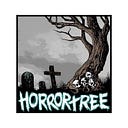How To Write A Prologue
How To Write A Prologue
There are few things more controversial in fiction writing than prologues. Conduct a search for information about prologues, and you are bound to find articles, lists, etc. all about how prologues are bad and you should never use them. But writing rules are often more like guidelines, in that they don’t apply to everyone and every situation. Plenty of well-written novels, particularly in the fantasy genre, utilize prologues to great effect. In this article, I’m going to look at the pros and cons of prologues, and how you can best use them (or not) in your own fiction.
What’s so Bad About Prologues Anyway?
A prologue is a separate section at the beginning of a story. It’s different from the first chapter in that, while the first chapter kicks off the story, the prologue takes place before the main story. It provides backstory or other important context for the upcoming action. And therein lies the difficulty with prologues.
I’m just going to come out and say it: There is nothing inherently wrong with prologues. I will stand by that statement. The true issue is with poorly done prologues. Often, the backstory they provide can feel like a boring exposition dump, causing the reader to either put down the book, or skip ahead to chapter one. Also, since the prologue isn’t written like a first chapter carefully introducing the characters and the world, it can be confusing and off-putting. This is most common with fantasy books. In The Wheel of Time by Robert Jordan, a series that I was once very passionate about begins not with Rand, the main character, but with Lews Therin, a man who died thousands of years before the main narrative. After reading the series, the importance of the prologue is clear, but when I first read it, I was confused as to who this person was and why he was in the story.
Well, then the solution must be to have an exciting prologue that draws the reader in, right? Not necessarily. Another major complaint about prologues is that they can be too exciting. They can be so engaging that when the main story kicks off, the reader is left disappointed and wanting to return to the world of the prologue instead of continuing. Even if the prologue is set in the same world, a sudden burst of action at the start can make a slower opening seem boring. The prologue ends up competing with its own book, once again frustrating the reader.
Why Use Prologues At All?
If so many people have such a visceral hatred for prologues, why even use one? It’s true that prologues can be difficult to get right and can put off lots of readers. However, some stories need prologues, and in the right hands, they can be a welcome addition to your story instead of a detriment.
Thrillers and horror stories will often open with a scene of a character we do not know being gruesomely slaughtered in order to show the reader that action is coming, or to introduce a villain who normally wouldn’t be seen until well into the narrative. While this method can run the risk of competing with the opening, if done well, the prologue will create effective background tension for the first few chapters. An excellent example of this is the movie Scream.
In the opening sequence, we meet Drew Barrymore’s character as she is taunted over the phone by Ghostface, asking her if she likes scary movies, before she and her boyfriend are brutally slaughtered. This scene establishes the threat of Ghostface, gives the audience some earlier scares, and 26 minutes in when Sydney casually assumes her mystery caller is her friend, Randy, the audience is tense because they know the truth.
Another way a prologue can enhance your narrative is providing important character context. Your main character may be difficult because they have faced tragedy in their life. The prologue can help the reader understand them better, and if left later in the story, it runs the risk that the reader has no sympathy for the main character and the backstory feels too little, too late. Finding Nemo opens with Marlin losing his entire family, minus Nemo, to a barracuda, which makes the audience sympathetic to his obsessive need for control. Originally, this information was revealed later in the story, and test audiences despised Marlin. Creating this prologue solved that problem.
How to Know if You Should Use a Prologue
At this point, you may be confused about whether a prologue is a good idea or not. The real question you need to ask yourself is if a prologue is right for your story, but there are some other questions you can ask to help answer that questions:
- What is the purpose of my prologue? Why am I including it?
- Can this information be woven effectively into the main narrative?
- Is the action in my prologue enhancing my story or distracting from it?
- Are these characters/events relevant to the main story? If so, should they be brought in through flashbacks instead?
Many will tell you to avoid prologues at all costs, but in certain circumstances, it can help your story in unexpected ways. It’s best to use them with caution and examine exactly what the prologue brings to your narrative. Ultimately, you need to do what best serves your story, and you are the best judge of that.
Sources:
Six Common Forms of Bad Writing Advice https://mythcreants.com/blog/six-common-forms-of-bad-writing-advice/
Overman, Kristen, “Avoid the Novel Prologue. Here’s Why” https://www.goodstorycompany.com/blog/novel-prologue
Bruncati, Danielle, “Pixar’s Finding Nemo’s Heartbreaking Opening Scene Was Almost Completely Different, And I’m Glad They Made The Change They Did”
https://www.cinemablend.com/movies/pixar-finding-nemo-heartbreaking-opening-scene-almost-completely-different
Yates Martin, Tiffany, “Are Prologues Bad or Aren’t They?” https://foxprinteditorial.com/2022/11/17/are-prologues-bad-or-arent-they/
https://horrortree.com/how-to-write-a-prologue/?feed_id=2715&_unique_id=6684086ca2a17
